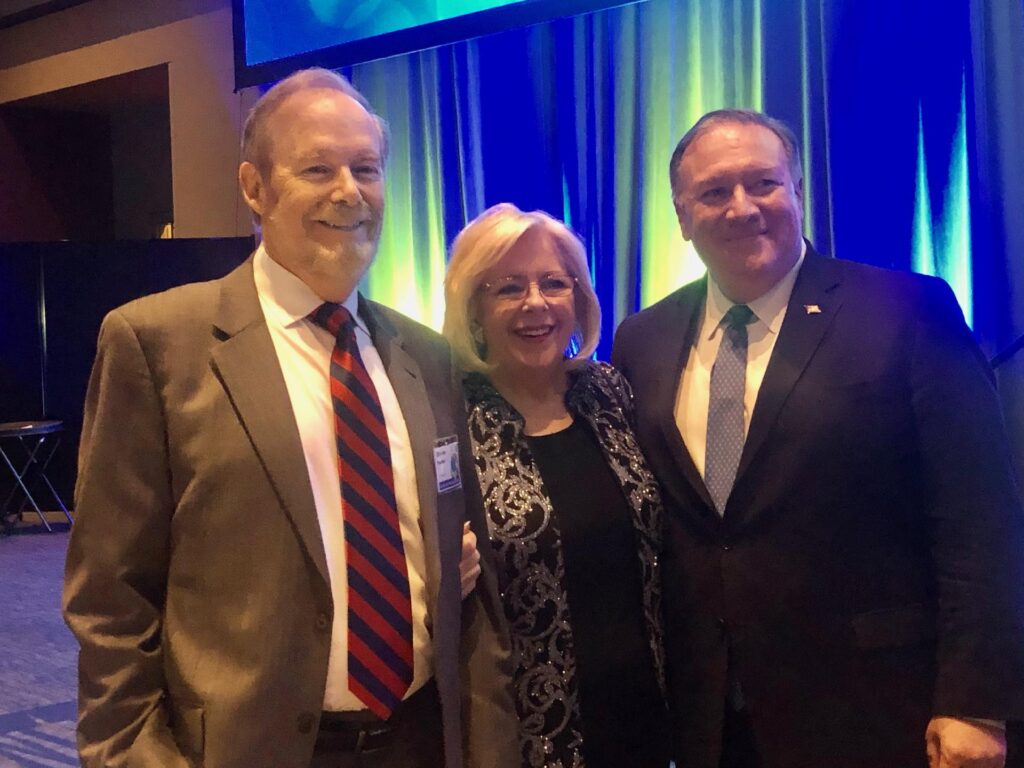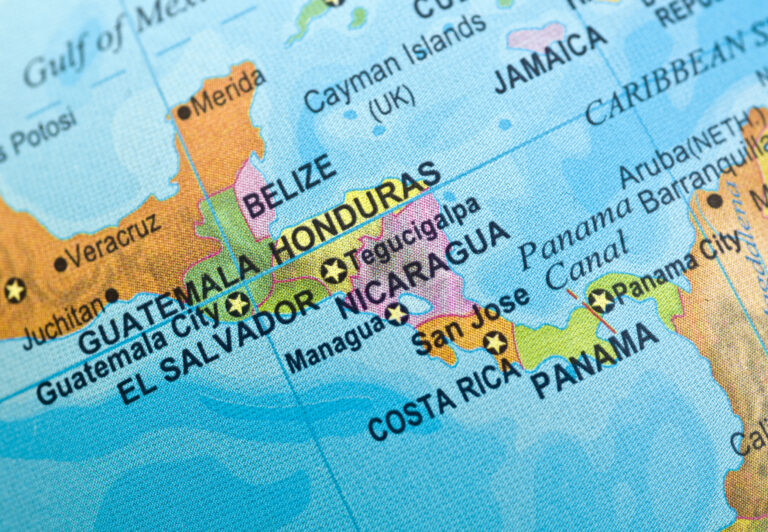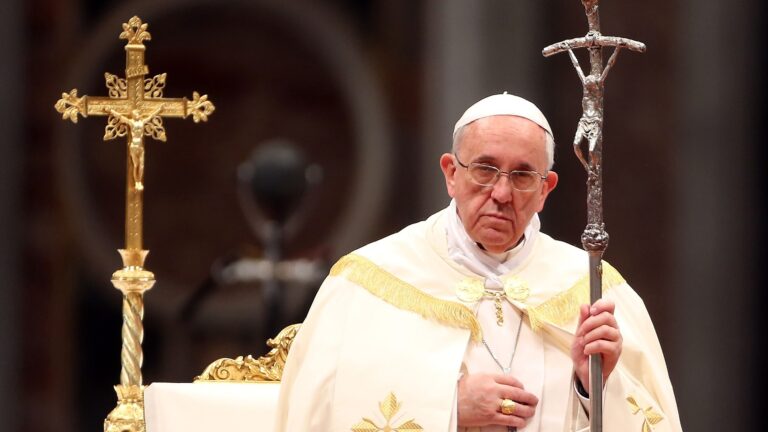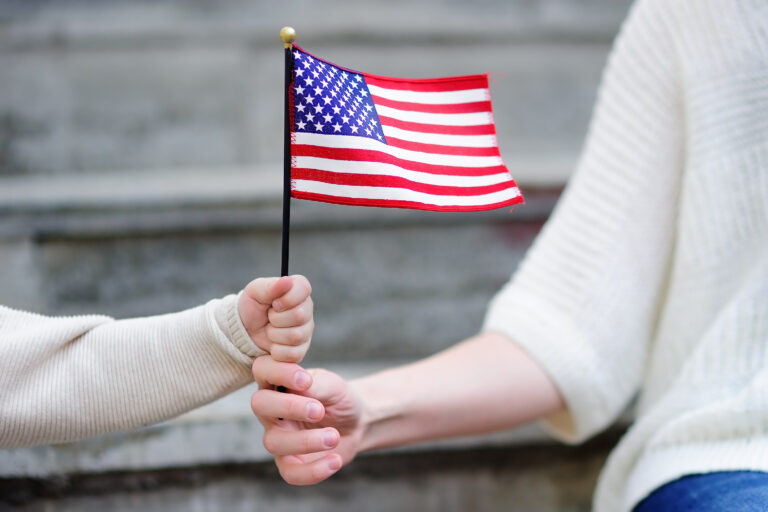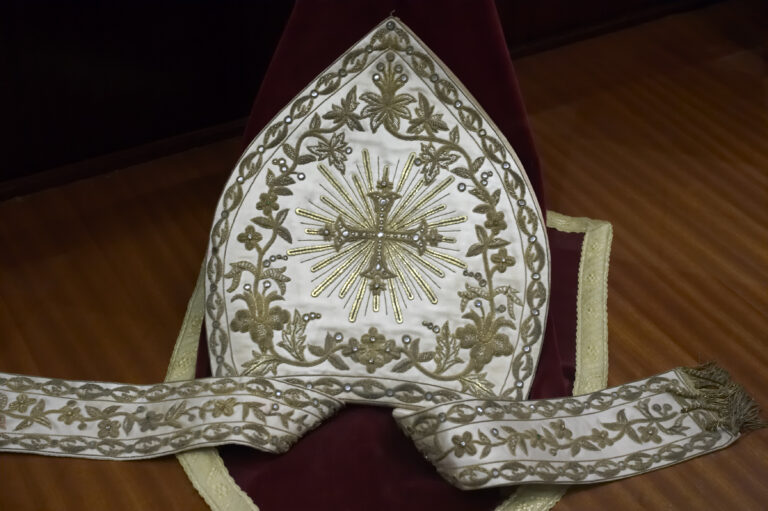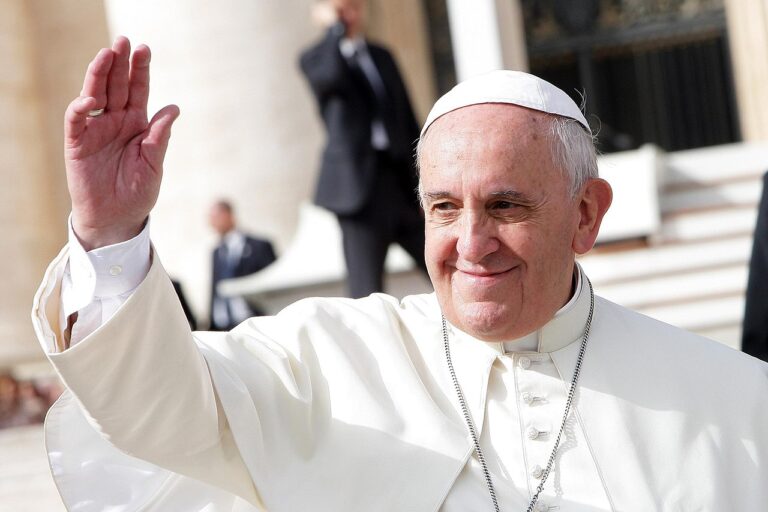At their annual meeting in Baltimore this week, America’s Catholic bishops’ will discuss the adoption of a proposed document on the Eucharist. One question that might arise concerns the specific issue of reception of Communion by pro-abortion Catholic politicians like Joe Biden, Nancy Pelosi, and some 100 current members of the U.S. Senate and the House of Representatives.
Our last Weekly Briefing recounted the doctrinal history behind the controversy. It focused on the requirements of Canon Law and the disagreements that have arisen among senior American prelates on how to apply it to those Catholics.
But there is an equally important aspect of recent history that involves not doctrine, but politics. Unfortunately, it has not received wide discussion, although it will likely play a significant role in the proceedings.
The account begins almost fifteen years ago, on May 9, 2007, as Pope Benedict XVI was traveling to Brazil on his first papal trip outside of Europe. The newly consecrated pope confirmed Church law when he told an inquiring reporter that he would support Latin American bishops who excommunicated pro-abortion lawmakers.
“It is part of the code,” Benedict said. “It is based simply on the principle that the killing of an innocent human child is incompatible with going in communion with the body of Christ.”
Within hours, a reporter from The Hill, at the time an obscure newspaper on Capitol Hill, chanced upon Senate Judiciary Committee Chairman Patrick Leahy (D-VT) in a Capitol hallway and asked him to comment on the pope’s statement.
Leahy’s reply was blunt: “I’ve always thought that those bishops and archbishops who for decades hid pederasts and are now being protected by the Vatican should be indicted,” he said.
No other media picked up the story, but the report undoubtedly appeared on the desk of every bishop in America by the next morning.
At the time Leahy, a Catholic, chaired the Senate Committee on the Judiciary. Today, he is the Committee’s most senior and influential member. No doubt his comment so long ago resonates even today in prelates’ ears, both in the United States and in Rome.
Circled Wagons On A Rough Road
Leahy spoke five years after U.S. bishops June 2002 meeting in Dallas. That meeting was called to confront the national outrage over the clerical sexual abuse and cover-up scandals that for years had plagued Catholic dioceses throughout the country.
At the Dallas meeting, Bishop Fabian Bruskewitz of Lincoln made a motion that the USCCB commission an independent study of the causes of the scandals.
His motion didn’t even get a second.
Instead, the assembled bishops adopted a “Charter for the Protection of Children and Young People.” Before they adopted it, however, the bishops voted – in a nationally televised session – to exempt themselves from their own Charter.
Why did Bishop Bruskewitz’s motion die an orphan’s death?
When the bishops arrived in Dallas, they were met by a blockbuster story in the Dallas Morning News. Months of research had concluded that at least 111 of the country’s 178 diocesan ordinaries had allowed clerics accused of abuse to continue working in ministry, it read.
“Church spokesmen did not dispute the results of the study,” the story added.
In that report, two-thirds of the bishops meeting in Dallas were accused of enabling suspected abusers. Yet they left Dallas with their brother bishops, returned to their dioceses, and rode out the storm from inside their chanceries.
In the words of Ben Franklin, the bishops chose to hang together, lest they hang separately. They rejected Bishop Bruskewitz’s motion because the last thing they wanted to allow was a shift of focus from abuse by priests to cover-ups by prelates.
As it happened, virtually all bishops who were not abusers themselves remained in office until they retired or died. Their decision cost the faithful billions of dollars and wrought untold damage on Holy Mother Church, on the abusers’ victims, and on the laity and faithful priests – who are, after all, victims of the scandals as well.
In diocese after diocese, bishops settled thousands of abuse lawsuits, often paying millions of dollars per plaintiff, rather than risking an appearance in court that would require their testimony given under oath.
As years passed, cardinals, archbishops, and bishops around the country breathed a collective sigh of relief whenever another state’s Statute of Limitations expired.
Senator Leahy’s comment reflected the widespread suspicion that many bishops had settled case after case in order to avoid having to testify.
The architect of the 2002 Charter was Cardinal Theodore McCarrick, Archbishop of Washington. McCarrick was the most powerful American prelate for years, but in May 2018 he was revealed to be a serial abuser himself and was soon reduced to the lay state by the Vatican. The revelation prompted new investigations nationwide, and even today some two dozen State Attorneys General are investigating Catholic dioceses in their jurisdiction.
This is the political lay of the land that forms the backdrop for the bishops’ meeting this week.
And it helps to explain why the bishops are likely to gavel out their meeting without doing anything to address the case of Joe Biden, even though Canon 915i of the Code of Canon Law requires that he not be admitted to Communion.
Why won’t they?
Canon Fire
To address that question, this writer proposes a scenario, drawing on years of experience on the U.S. Senate staff, often working closely with the Judiciary Committee during the Reagan years.
Let us suppose that, in this coming year, Senator Leahy’s bishop, Christopher Coyne of Vermont, decides to apply Canon 915 to the Senator as Canon Law requires.
The bishop privately requests a meeting with Leahy. There, he advises the Catholic Senator that he should reconsider his support of abortion. In the meantime, the bishop makes clear, Leahy should refrain from receiving the Eucharist.
Senator Leahy, no stranger to Canon 915 and a notably determined man, refuses.
Given that refusal, the new bishop then announces to the public that Senator Leahy’s support for abortion is a public scandal because he is “obstinately persevering in manifest grave sin.” Bishop Coyne then communicates to all pastors his firm directive that Leahy is not to receive the Eucharist anywhere in the Diocese of Vermont.
Will Senator Leahy demurely submit? Publicly apologize? Promise to lead the 2022 March for Life?
I have observed Senator Leahy for forty years. He knows the Church well – his brother-in-law, a Priest of the Holy Cross, had the office next to mine decades ago in the basement of Notre Dame’s Hesburgh Memorial Library.
Senator Leahy will not submit. Indeed, he might well retaliate.
The next step will be easy.
Given his senior role on the Senate Committee on the Judiciary, Leahy has significant influence on the Committee’s schedule. In discussion with other members of the Committee, he might mention the innocuous spark of intellectual curiosity that had prompted his statement back in 2007. He might ask, “Why doesn’t the Committee announce a series of hearings to discuss the issue of clerical abuse and invite the major media to cover them?”
“Many states are currently conducting investigations of sexual abuse by Catholic clerics,” the Committee might announce. “In several of those states, the Statutes of Limitation often vary widely. With so many serious inquiries under way, we consider this to clearly constitute a nationwide issue which should be discussed on a national level. We have therefore invited several senior Catholic prelates to appear before the Committee to testify regarding their response to this crisis.”
Yes, in every case the various Statutes of Limitations that might have applied to the conduct of these shepherds during the scandals have indeed expired – but now they would face a new one.
The first witness called would be Los Angeles Roger Cardinal Mahony, who successfully avoided testifying in court until the Statute of Limitations had expired. He spent a billion dollars of the faithful’s money to do it, and his outraged successor, Archbishop José Gómez, disciplined him for his serial malfeasance. Mahony ignored the order and continued to exercise public ministry in the diocese.
But Mahony and other coverup bishops would have no grounds for ignoring a subpoena from the Senate Judiciary Committee. And that Committee routinely swears in its witnesses. Lying while under oath constitutes perjury. And the Statute-of-Limitations clock on perjury starts ticking all over again the moment that the witnesses are sworn in and begin to testify.
Let’s put ourselves in the bishops’ shoes.
They wonder, “What does Leahy know? He was on the Intelligence Committee for years. Does he have the records of my phone calls? Bank accounts? E-mails from my private account? Drafts of my letters? Data dumps from my computers, iPhones, backup drives? Have the IRS and the FBI been sending him my files?”
A smiling Senator Leahy warmly welcomes the bishops, and thanks them for appearing before the Committee. After a brief opening statement, the Senator – who, we recall, has been proclaimed an obstinate purveyor of persistent public scandal by their brother bishop in Vermont – now turns the tables, and conducts a public interrogation of leading American prelates regarding the title of the hearing, “The Catholic Abuse-and-Cover-Up Scandals.”
All broadcast live and nationwide.
Ringing in the bishops’ ears is that adamantine charge made by then-Chairman Leahy to a reporter in response years ago to a question that came out of the blue:
“Should be indicted …. Should be indicted….”
The cameras are rolling. Leahy and his colleagues can ask them anything.
That old hearing favorite, “What did you know and when did you know it,” would probably suffice.
The prelates must answer, fully and truthfully, or take the Fifth, one after the other, while the whole country is watching.
And that is why pro-abortion Catholic politicians are unlikely to experience problems with their bishops in coming years.


